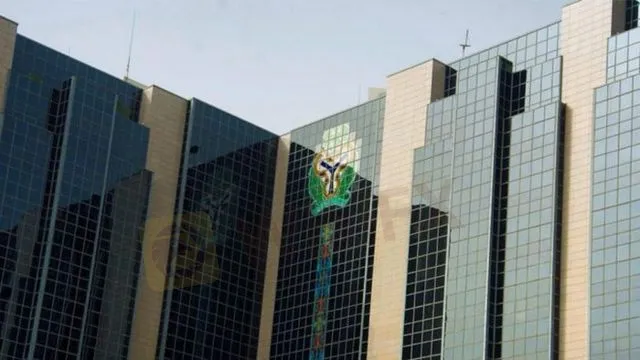简体中文
繁體中文
English
Pусский
日本語
ภาษาไทย
Tiếng Việt
Bahasa Indonesia
Español
हिन्दी
Filippiiniläinen
Français
Deutsch
Português
Türkçe
한국어
العربية
How commodities ecosystem can drive CBN’s FX policy
Abstract:Bankers and other operators in the Nigerian financial market have identified deployment of commodities ecosystem as a means, which the Central Bank of Nigeria (CBN) can achieve the plan to generate up to $200 billion yearly from non-oil exports in the next three to five years through its RT 200 FX policy.

Bankers and other operators in the Nigerian financial market have identified deployment of commodities ecosystem as a means, which the Central Bank of Nigeria (CBN) can achieve the plan to generate up to $200 billion yearly from non-oil exports in the next three to five years through its RT 200 FX policy.
The stakeholders that gathered at a breakfast meeting, hosted by Lagos Commodities and Futures Exchange (LCFE) at the weekend, agreed that effective utilisation of Nigerias commodities ecosystem presents ample opportunity for the apex bank to generate forex through non-oil exports.
In his presentation, the Divisional Head, Agribusiness, Natural Resources and Project Development Heritage Bank, Olugbenga Awe, explained that the Nigerian economy had been well-diversified, going by statistics except for the sources of forex.
Awe, who spoke on ‘The opportunities for financial Institutions in the CBN RT 200 FX’ programme, stated that a commodity exchange was a risk management platform.
According to him, the biggest challenge to the exportation of non-oil products in Nigeria is the ability to meet global standards and demand.
He explained that the Nigerian non-oil products could boost forex earnings if they meet global standards.
This is where commodities exchanges come in. Any product whose electronic receipt is traded on a commodities exchange must be of global standard.
“Banks are willing to support exporters provided they meet certain criteria, including a history of performance, export volume and frequency, payment methods, products sourcing strategy, risk mitigants and seasonality among others.”
Corroborating him, the Managing Director, Agvest Nigeria, Bode Abikoye, noted that commodities prices offer protection from the effects of inflation.
Investing some of your portfolios in commodities is recommended by many experts as it is seen as a diversifier asset class.
Moreover, some commodities tend to be a good hedge against inflation, such as precious metals and energy products.
Investors break down commodities into two categories: hard and soft. Hard commodities require mining or drilling, such as metals like gold, copper, and aluminum, and energy products like crude oil, natural gas, and unleaded gasoline.
Soft commodities refer to things that are grown or ranched, such as corn, wheat, soybeans, and cattle. Commodities tend to bear a low to negative correlation to traditional asset classes like stocks and bonds.
“Supply-and-demand dynamics are the main reason commodity prices change. When there is a big harvest of a certain crop, its price usually goes down, while drought conditions can make prices rise from fears that future supplies will be smaller than expected”, Abikoye said.
The Chief Executive Officer Lotus Capital, Hajara Adeola, who spoke on ‘The Potentials of Non-Interest Financial Instruments to Finance Commodities Ecosystem’, explained that non-interest financial instruments were based on managing businesses on moral principles, stating that they offer many benefits to investors.
In his welcome remark, the Managing Director, LCFE, Akin Akeredolu-Ale explained that a commodities exchange would always come in by catalysing enabling environment, alignment of relevant stakeholders, transparent trading platform, certification and standardisation, data and price discovery, enabling environment for price discovery and regulatory framework.
Disclaimer:
The views in this article only represent the author's personal views, and do not constitute investment advice on this platform. This platform does not guarantee the accuracy, completeness and timeliness of the information in the article, and will not be liable for any loss caused by the use of or reliance on the information in the article.
Read more

Italy’s CONSOB Blocks Seven Unregistered Financial Websites
Italy’s CONSOB ordered seven unauthorized investment websites blocked, urging investors to exercise caution to avoid fraud. Learn more about their latest actions.

CySEC Warns Against Unauthorized Investment Firms in Cyprus
CySEC warns investors about unregulated investment firms in Cyprus. Verify broker reliability through the WikiFX app to stay protected from scams.

STARTRADER Issues Alerts on Fake Sites and Unauthorized Apps
STARTRADER warns against counterfeit sites and apps using its brand name. Protect yourself by recognizing official channels to avoid fraudulent schemes.

Dukascopy Bank Expands Trading Account Base Currencies
Dukascopy Bank now offers AED and SAR as base currencies for trading, expanding options for clients to fund accounts in Dirham and Riyal.
WikiFX Broker
Latest News
CWG Markets Got FSCA, South Africa Authorisation
Amazon launches Temu and Shein rival with \crazy low\ prices
CySEC Warns Against Unauthorized Investment Firms in Cyprus
Revolut X Expands Crypto Exchange Across Europe, Targeting Pro Traders
Crypto Scammer Pleads Guilty in $73 Million “Pig Butchering” Fraud
Capital.com Shifts to Regional Leadership as CEO Kypros Zoumidou Steps Down
Broker Review: Is Exnova Legit?
Why Even the Highly Educated Fall Victim to Investment Scams?
Warning Against Globalmarketsbull & Cryptclubmarket
FBI Raids Polymarket CEO’s Home Amid 2024 Election Bet Probe
Currency Calculator


